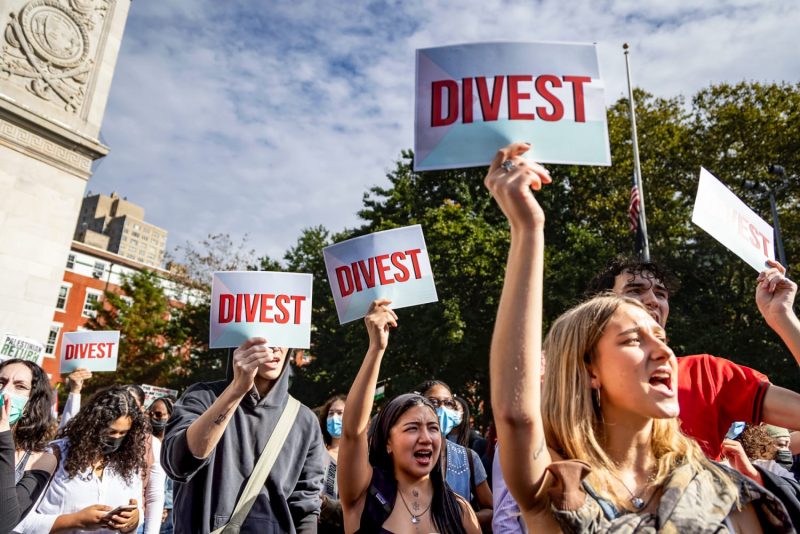College Protesters Want Their Schools to Divest from Ties to Israel – Here’s What That Means
The call for divestment from companies with ties to Israel is a growing movement on college campuses across the United States. This movement, led by pro-Palestinian student groups, aims to pressure universities to end their investments in companies that are allegedly involved in the oppression of Palestinians. The push for divestment is part of a broader campaign to support the Boycott, Divestment, and Sanctions (BDS) movement, which seeks to put economic and political pressure on Israel to change its policies towards Palestinians.
What Does Divestment Mean?
Divestment is a strategy that involves selling off investments in companies, governments, or organizations that an individual or institution deems unethical or harmful. In the context of the movement targeting Israel, divestment refers to universities selling their shares in companies that are believed to be complicit in human rights abuses in the Palestinian territories. By divesting from these companies, protesters hope to send a message that they do not support or condone the actions of these entities.
Challenges and Controversies
The call for divestment from companies with ties to Israel is not without its challenges and controversies. Critics argue that singling out Israel for divestment unfairly targets the country and undermines its legitimacy. They also point out that divestment may have limited impact on changing Israeli policies and could potentially harm the economic interests of Palestinians working for the targeted companies.
On the other hand, supporters of divestment believe that it is a powerful tool for raising awareness about the Israeli-Palestinian conflict and putting pressure on companies to act ethically. They argue that universities have a moral obligation to ensure that their investments do not support human rights abuses or violations of international law.
The Role of Universities
Universities have long been considered bastions of free speech and activism, and student-led movements for social justice have a rich history on college campuses. The call for divestment from companies with ties to Israel is just one example of how students are using their voice and influence to advocate for change.
However, universities must carefully navigate the complexities of divestment campaigns, balancing the demands of student activists with their fiduciary responsibilities to their endowments and stakeholders. Some universities have chosen to divest from certain companies or industries in response to student pressure, while others have resisted calls for divestment, citing concerns about academic freedom and the need for impartiality in political matters.
Moving Forward
The debate over divestment from companies with ties to Israel is likely to continue on college campuses for the foreseeable future. As student activists push for change and university administrators grapple with their responses, it is important for all parties involved to engage in respectful dialogue and seek common ground.
Ultimately, the goal of divestment campaigns is to effect positive change and promote social justice. By engaging in constructive conversations and challenging the status quo, students, universities, and stakeholders can work together to create a more equitable and sustainable future for all.
